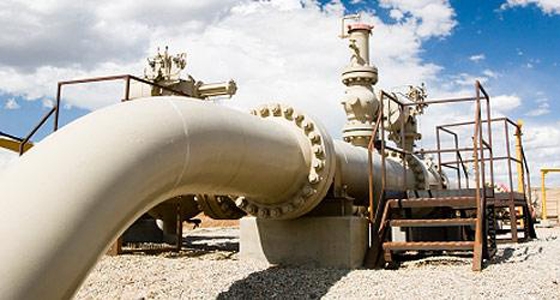A double pipeline that will channel oil to Jordan from Iraq is expected to play a key role in the Kingdom’s efforts to diversify and strengthen its energy sources.
An agreement signed between the two countries on April 15th has paved the way for construction work on the $18bn project to begin, with Iraqi officials estimating that the pipeline should be operational by 2017. The 1680-km link will connect the Iraqi city of Basra with the Jordanian port city of Aqaba. Once completed, it will pump 1m bpd of oil and 258m cu feet (mcf) of natural gas each day from Iraq to Jordan.
The pipeline will mark a major upgrade for the Kingdom, which currently receives its 15,000 bpd oil imports from Iraq by truck. An additional sub-line will be connected to the Kingdom’s refinery in Zarqa, where the Jordan Petroleum Refinery Company will process 150,000 bpd, together with 100 mcf of natural gas, for the domestic market. The remaining oil and gas will be channeled through Aqaba to the international market, generating annual transit fees of $3bn for Jordan.
Project financing for the pipeline will be divided into two segments, with the Iraqi government bankrolling the engineering, procurement and construction of the pipeline from Basra to Haditha, a city in Iraq’s Al Anbar province. Funding for the second phase of the pipeline from Haditha to Aqaba will be finalized at a later date on a build-operate-transfer basis.
Nihad Mossa, director-general of the State Company for Oil Projects at Iraq’s Ministry of Oil, said companies will initially be given the opportunity to bid for the first pipeline segment from Basra to Haditha. A tender for the Haditha to Aqaba segment is then expected to be issued in the first quarter of 2014.
Iraq’s oil ministry has already awarded the Canadian SNC-Lavalin Group a contract to develop front-end engineering designs for the pipeline, which are expected to be completed within the next few months, according to the Wall Street Journal.
At present, about 80% of Iraq’s hydrocarbons exports, which total 2.2m bpd, are shipped through the Strait of Hormuz. Jordan, meanwhile, relies almost entirely on oil imports from the Gulf region, alongside gas from Egypt for most of its electricity generation.
This situation leaves both countries vulnerable to energy shocks sparked by ongoing political instability in Iran and Egypt. Flow through the Arish-Aqaba section of the Arab Gas Pipeline, which supplies gas from Egypt to Jordan, was brought to a halt on a number of occasions between February 2011 and mid-2012 due to sabotage. Gulf exporters, meanwhile, remain concerned about sporadic threats from Iran to obstruct the Strait of Hormuz.
The Basra-Aqaba pipeline will reduce Jordan’s exposure to the impact from energy transport chokeholds, complementing the government’s drive to boost its energy sources. These include plans to extract the Kingdom’s extensive oil shale reserves, while site selection for its first nuclear power plant is expected this year.
However, the planned pipeline will not be risk-free. Forced to circumvent the shortest distance between source and destination to remain within the territory of both countries, the pipeline will have to loop through the restive Al Anbar province of Western Iraq. The region is also vulnerable to any spillover of violence from Syria.
Oxford Business Group
7 Jun 2013
























































